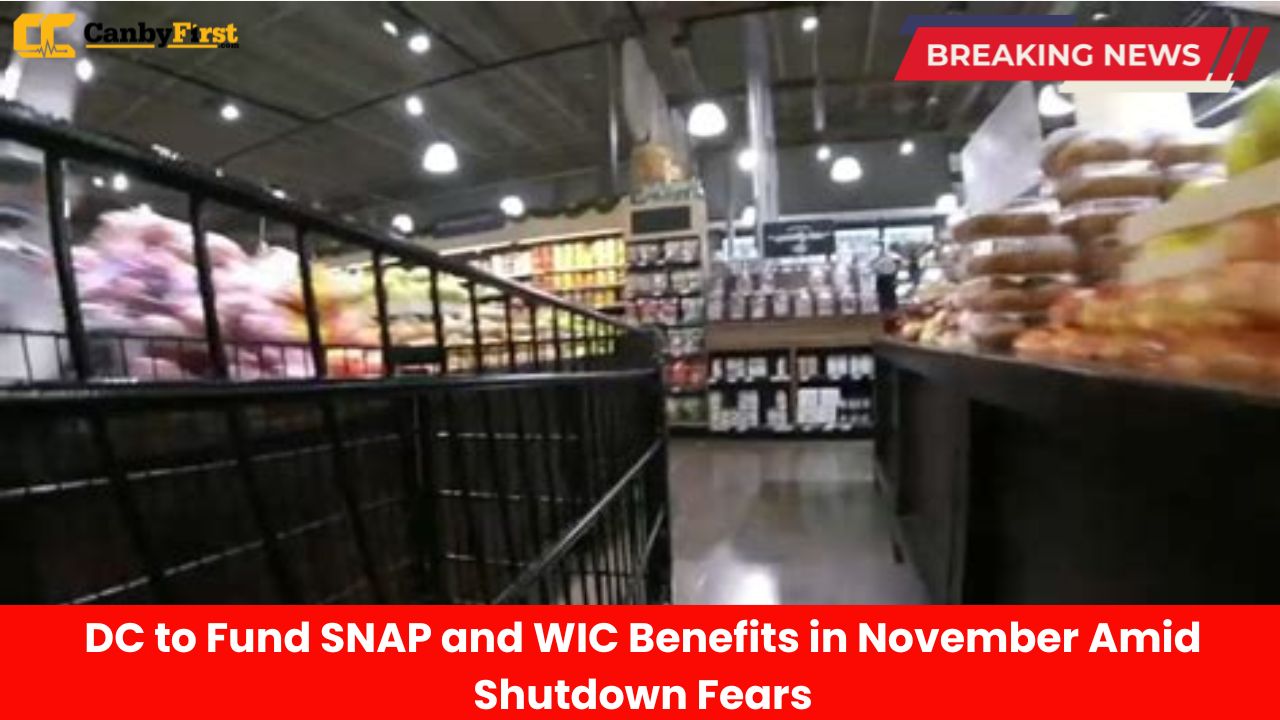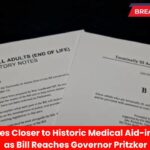Washington, US: DC to Fund SNAP and WIC Benefits in November Amid Shutdown Fears. As the possibility of a prolonged federal government shutdown looms, Washington, DC officials have pledged to ensure that vital food assistance programs such as SNAP and WIC continue for residents through November. The move aims to shield low-income families from disruptions that could affect their access to essential nutrition support.
City to Step In if Federal Funding Lapses
DC Mayor Muriel Bowser announced that the city government will tap into local contingency funds to guarantee uninterrupted benefits for families who rely on the Supplemental Nutrition Assistance Program (SNAP) and the Women, Infants, and Children (WIC) program. With thousands of DC households depending on these benefits, city officials are preparing for every scenario, especially if Congress fails to reach a funding agreement soon.
Bowser emphasized that no family in the District should go hungry due to political gridlock. She reaffirmed that the city’s top priority remains the well-being of its residents, particularly children and working-class families who rely on these programs for basic nutrition.
Also Read
SNAP and WIC: Lifelines for Thousands
According to DC Human Services officials, more than 140,000 residents currently receive SNAP benefits, while the WIC program supports approximately 16,000 women, infants, and children across the city. These programs provide monthly funds for groceries, infant formula, and nutritional education to ensure families maintain healthy diets despite financial constraints.
Experts warn that without timely intervention, a shutdown could freeze federal processing of new SNAP applications and temporarily halt benefit renewals. By stepping in, DC hopes to close that gap and avoid the cascading effects of hunger and financial instability that could ripple through vulnerable communities.
Local Funds as a Safety Net
DC officials clarified that they have limited authority to operate independently of federal control, but the city’s Financial Recovery Reserve and contingency funds will be used if necessary. These emergency reserves were designed exactly for moments when essential services were at risk due to federal inaction.
City administrators are also coordinating with grocery retailers and benefit processors to ensure technical systems continue running smoothly. This will help prevent payment delays that could affect the ability of residents to buy food using their electronic benefit cards.
Community Relief Measures Under Review
In addition to extending SNAP and WIC coverage, DC’s Department of Human Services is working with local nonprofits and community organizations to expand emergency food distribution sites. Food banks across the city are preparing for a potential increase in demand should the shutdown continue into December.
The Capital Area Food Bank and other partner organizations have already reported rising food insecurity over the past year, as inflation continues to strain household budgets. City leaders believe the federal impasse could make the problem worse, which makes early intervention vital.
Broader Implications for Residents
A lengthy federal shutdown not only threatens nutrition assistance but could also affect housing vouchers, veterans’ benefits, and child care programs across the District. Since DC has a uniquely high concentration of federal workers, both direct federal employees and contractors could face temporary furloughs or loss of pay.
Economists warn that such income disruptions could have ripple effects across the local economy, reducing spending power and increasing reliance on public assistance programs. That makes the city’s proactive step to secure funding for essential support even more crucial.
City Calls for Bipartisan Federal Action
Mayor Bowser and city council members are urging Congress to finalize a budget agreement quickly to prevent further uncertainty. Officials emphasized that while DC can manage short-term funding from local reserves, those resources are not infinite and are meant for emergencies, not to supplement long-term federal responsibilities.
“Washington, DC should not have to carry the burden of federal dysfunction,” a city budget representative noted. “Families should not be forced to worry about putting food on the table because leaders in Congress cannot reach a compromise.”
What Residents Should Know
Residents currently enrolled in SNAP or WIC are advised that their November benefits will be distributed as scheduled. Individuals who were planning to apply for new benefits can continue their applications online or through local service centers. Officials assured that all updates regarding future funding or eligibility changes will be communicated directly through official DC channels.
DC agencies are also encouraging residents to check their benefit balances early and stay informed about local food assistance programs in their neighborhoods. In case of extended shutdowns, additional resources are expected to be deployed to help low-income households manage through the period.
Outlook for December and Beyond
While the city’s efforts offer immediate continuity for November, uncertainty remains about December should the federal stalemate persist. City officials are monitoring the situation closely, and discussions are ongoing about extending local coverage if federal funding does not resume.
Economists note that although DC’s fiscal management has improved in recent years, recurring federal shutdowns pose long-term risks to the city’s stability. The repeated need to divert emergency funds for federal functions could eventually challenge the District’s spending priorities.
Still, the decision to protect residents from immediate hardship underscores DC’s commitment to public welfare and its growing financial resilience. By stepping in during a moment of federal uncertainty, the city sends a clear message that the needs of its people come before politics.
Conclusion
Washington, DC’s pledge to cover SNAP and WIC benefits for November offers relief to thousands of residents who depend on these lifelines for daily sustenance. As federal budget talks continue, the city stands ready to uphold its promise of food security and community support, ensuring that no DC family is left behind during uncertain times.












